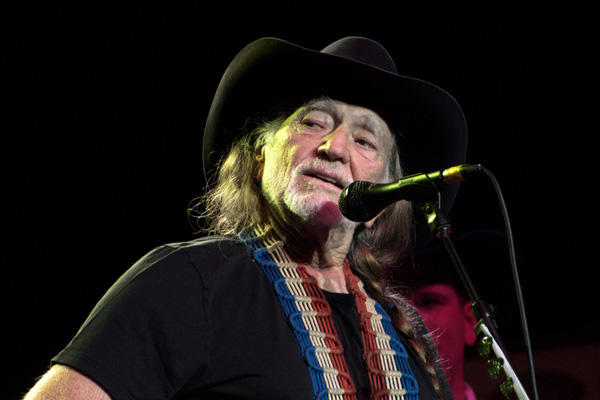"I was in the Air Force awhile, and they had what they call "policing the area." That's where you looked around, and if there's anything wrong here, there, anywhere, you took care of your own area. And I think that's a pretty good thing to go by. If everyone just takes care of their own area, then we won't have any problems. Be here. Be present. Wherever you are, be there. And look around you and see what needs to be changed."
He's a legendary singer and songwriter, an outspoken advocate for farmers' rights and even a little bit controversial (given his run-ins with the law over the years), but no one can deny that Willie Nelson has gone his own route in his life and career.
Appropriately enough (given his songs about underdogs), Nelson was born in Texas during the Great Depression. After a few tumultuous years with his family, Nelson and his sister Bobbie settled in Arkansas with their grandparents and were taught singing and guitar. To avoid picking cotton, Nelson sang in dance halls, taverns, and honky tonks from the age of 13 through high school.
After Nelson left high school in 1950, he enrolled in the Air Force and was medically discharged after about nine months due to back problems. He came back home to a string of odd jobs and frequent moves. He worked in oil fields, as a bouncer, and as a disc jockey for KBOP. Job leads ran dry eventually, and he made his way to Portland, Oregon, to live with his mother.
Nelson began his music career in Vancouver, Washington, and it took nearly 20 years to achieve lasting success. Whenever he couldn't earn enough cash, he'd pick up jobs as a door-to-door salesman and guitar instructor. Nelson sold songs, sang in clubs, and his music slowly worked its way into the country scene. His first singles, "Willingly" and "Touch Me," were released in 1962.
He began hopping between various music labels and was frequently on tour until he divorced his first wife and his ranch burned down. He even quit music for a time as his popularity waned, but his interest in the hippie movement brought him back.
From that point on, Nelson found success, releasing platinum albums and branched out into acting. His career is as interesting as it is successful; at one point, he butted heads with the IRS and had to hide his favorite guitar, Trigger, to prevent them from auctioning it off.
Nelson has also been an activist for various causes, including legalizing marijuana and gay marriage. Nelson's music is widely respected and enjoyed by many, and he has numerous awards to show for it. His legacy has been firmly cemented, and he produces new material to this day.
Despite his short time in the Air Force, Nelson has remained passionate about veterans issues, advocating for more health care for veterans, and supporting veteran advocacy groups such as Operation Firing for Effect.
Want to Learn About More Famous Veterans?
Whether you want to learn more about other famous veterans, polish up your resume, find veteran job fairs in your area, or connect with employers looking to hire veterans, Military.com can help. Sign up for a free Military.com membership to have job postings, guides and advice, and more delivered directly to your inbox.











